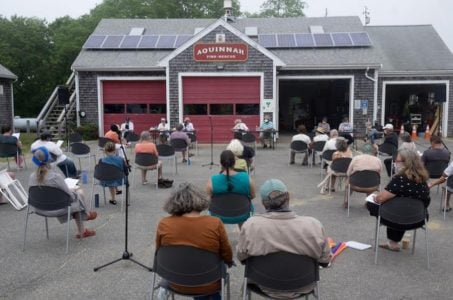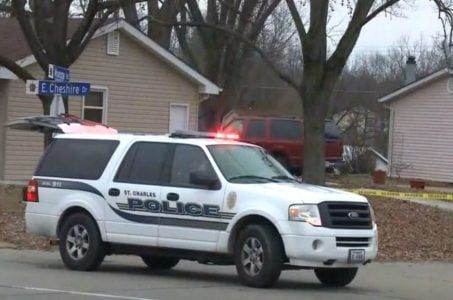Coronavirus Risk Cited as Latest Reason to Ban Slot-Like Machines in Missouri
Posted on: March 29, 2020, 09:34h.
Last updated on: March 29, 2020, 02:08h.
UPDATE: The Missouri Department of Health and Senior Services has banned using slot-like machines and other coin-operated devices located in gas stations and similar venues, according to the St. Louis Post-Dispatch. The Missouri ban started this weekend and will be in place for an indefinite period.
The Missouri Gaming Association, which represents the state’s casinos, is using the coronavirus outbreak to boost a long-held argument: the state should stop play on the estimated 14,000 unregulated slot-like machines found scattered throughout Missouri in locations such as gas stations and bars, news reports said.

The association told local and state health departments the machines are a health risk since they might be dirty, the Associated Press reported.
Some of the unregulated gaming devices still were in use last week as the state discourages public gatherings to the prevent the spread of COVID-19, the St. Louis Post-Dispatch reported.
Licensed Casinos Closed
The request comes after Missouri Gov. Mike Parson ordered the state’s 13 licensed casinos to close at least through Monday.
Even before the outbreak, the state’s gaming association worked to “eliminate illegal slot machines altogether.
Often lined up one right next to the other in gas stations and other establishments, the cleanliness of these illegal and unregulated slot machines is questionable,” Mike Winter, executive director of the association, claimed in a statement. “We believe the state should shut down these illegal slot machines, for the safety of our residents.”
There is no specific scientific data on how long the coronavirus could last on slot machines or similar devices. More generally, a National Institutes of Health study said coronavirus was detectable for up to two to three days on plastic and stainless steel.
But Gregg Keller, a spokesman for Torch Electronics [which operates the slot-like devices in Missouri], said they “continue to be enjoyed by Missourians,” the Post-Dispatch reported.
Platte County Case Could Set Precedent
The Missouri Gaming Commission has ruled the controversial gaming devices found in gas stations, bars, and clubs are illegal. The Highway Patrol forwarded dozens of illegal gambling cases to local prosecutors.
But prosecutors often do not proceed with cases. They are awaiting the adjudication of a case in Platte County, the Post-Dispatch said.
The Platte County case involves Integrity Gaming, a Kansas-based supplier of video poker-like machines, the Post-Dispatch said. Its outcome could impact the legality of the no-chance gaming machines.
In January, Linn County Prosecuting Attorney Shiante McMahon charged Torch with first-degree promoting gambling, according to the Post-Dispatch. The charge comes after Brookfield police officers last September seized three machines from a local convenience store. The devices allegedly belonged to Torch Electronics.
If found guilty, the company could be forced to pay a $10,000 fine. But company officials are “confident” they will be victorious in court.
Torch terminals closely resemble slot machines. A player puts in money, selects a game to play, and then selects a wager, the Post-Dispatch said. Winners get paid by a cashier at the store where terminals are located.
However, last year the Missouri Gaming Commission concluded the Torch machines are “gambling devices.” That makes them illegal unless they are in licensed casinos.
So far, the recent push to halt the use of the unlicensed machines has failed to generate action by state health officials.
No businesses have been closed and no machines have been targeted by the state,” Lisa Cox, spokeswoman for the Missouri Department of Health and Senior Services, was quoted in the Post-Dispatch report. “Right now, we are focused on promoting social distancing and good hygiene. This would be more easily enforceable by local health departments.”
The Missouri Gaming Association also opposes any future legalization of video lottery terminals, which they call “in essence, slot machines.”
The unlicensed gaming devices in Missouri have diverted some $50 million in tax revenue, based on statements by Missouri Lottery officials, the association said.
In Missouri, taxes on regulated casinos are the state’s fifth-largest source of revenue. In 2018, the legal gaming properties generated $369.7 million in tax revenue to the state, the association said. Another $76.4 million was paid in taxes to towns and cities.
Elsewhere, the Illinois Gaming Board ordered the public to no longer play video games through Monday.
Related News Articles
Missouri’s Ameristar Casino Site of Possible Anti-Gay Hate Crime
Stanley Ho Family Bicker After Late Casino Mogul Didn’t Leave Will
Most Popular
Mirage Las Vegas Demolition to Start Next Week, Atrium a Goner
Where All the Mirage Relics Will Go
Most Commented
-
Bally’s Facing Five Months of Daily Demolition for Chicago Casino
— June 18, 2024 — 12 Comments -
Chicago Pension Mess Highlights Need for Bally’s Casino
— July 2, 2024 — 5 Comments
















Last Comments ( 3 )
Just tax the profitsthe no chance machines make and let the same people paying it also pay taxes on what the winnings paid out to players as well then all taxes are paid machines stay and construction stays unblemished law not broke his regulation made on machines state keeps public happy not mad at system for taking advantage and ..
My owners turned them back on on May 4th and I'm even more scared then before. People waiting outside at 6am when I open the door to play. They aren't wearing masks and they hang out in large groups and invite friends. I can't get any work done cause the people who use the see machines are generally the types that steal and use drugs in the bathroom so I gotta babysit them. I refuse to clean them since they shouldn't be on and since they don't care about my health at all. A lot think the whole pandemics fake. Yesterday I had 2 customers in masks out of the 150ish I saw in a 10 hour shift. Yes we are working more and harder for less money and I'm afraid I will not make it thru the next month. Oh and even though I've worked this whole time I still can't pay bills barely yet I can't get food stamps or anything while people spend 50 bucks on energy drinks on food stamps then buy 100 in scratch offs with cash from super unemployment. People still working braiding the system and getting the super unemployment. Can't wait for them to get caught eventually. Ok rant off. Know that I died for methheads and lazy scammers to gamble.
I feel if a state can assist in shutting down the illegal machines during the COVID-19 condition, there also lays a very great opportunity to keep them shut off for good.